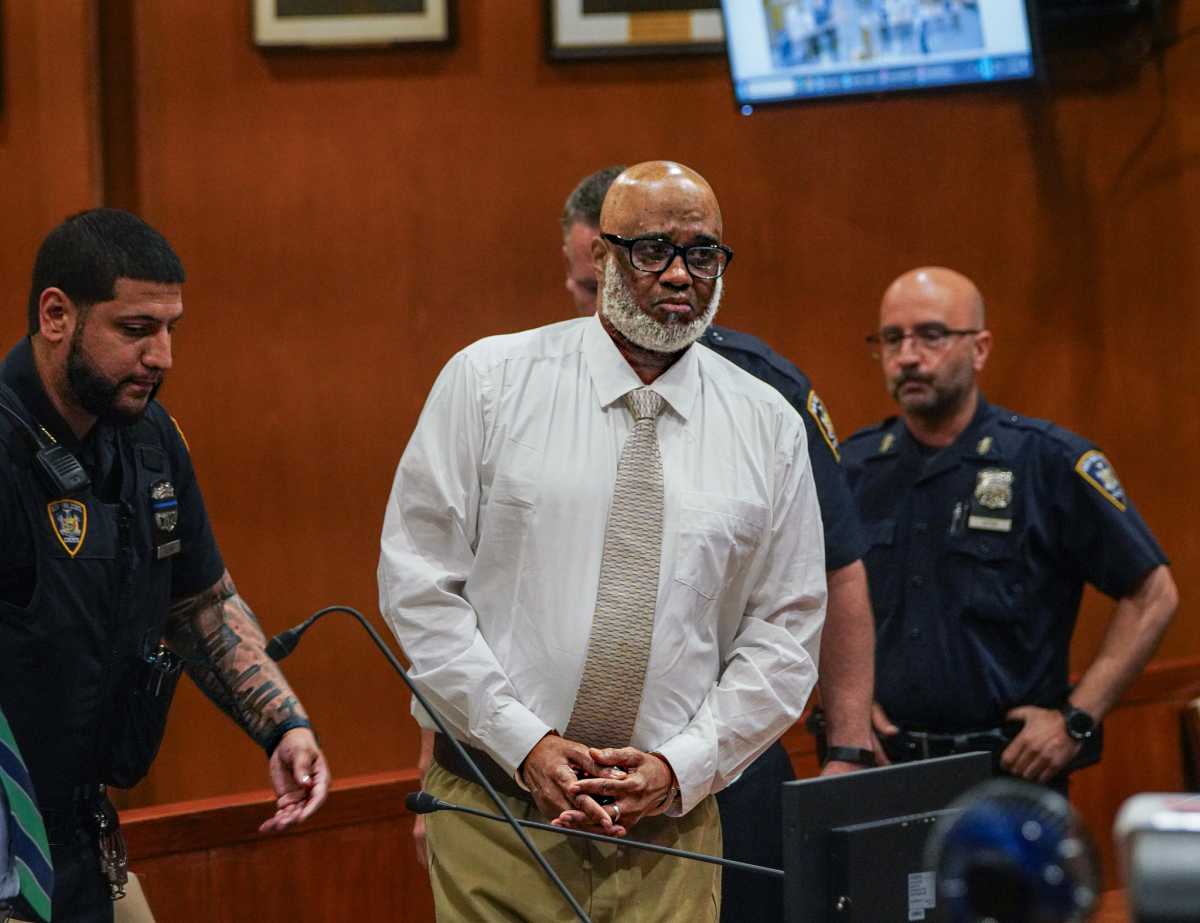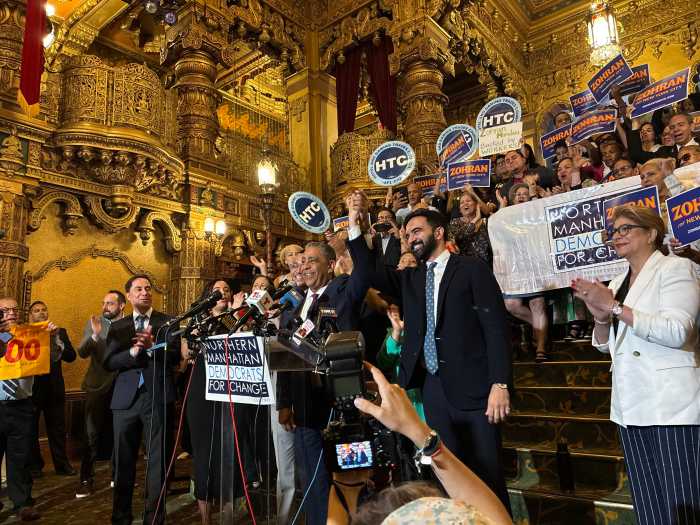By The TimesLedger Staff
“There is no peace process – the road map is dead” with Hamas in power, said U.S. Rep. Gary Ackerman (D-Bayside), the ranking Democrat on the House Subcommittee on the Middle East and Central Asia.Both he and fellow congressman, U.S. Rep. Gregory Meeks (D-St. Albans), said Hamas, which has openly taken credit for carrying out suicide bombings in Israel, must remove its call for the destruction of the Jewish state from its charter or face economic consequences.”There is no aid to terrorist states, to terrorist organizations sponsored by states, which Hamas qualifies as one,” Ackerman said.”I'm looking for a signal from Hamas that I have not seen,” Meeks said, referring to an acknowledgement from the terrorist group that Israel has a right to exist. “I'm hoping that there is some signal at some point, an indication they will change some of their ways.”Hamas captured 76 of the 132 seats up for grabs in the Palestinian parliament. The sizable majority means that the group does not have to look to other parties to form a government.The Hamas victory, viewed as surprising by the United States and even the Mossad, Israel's intelligence agency, changes the landscape of Palestinian political rule. The outgoing Fatah Party, the political wing of the late Yasser Arafat's Palestine Liberation Organization and known to be rife with corruption, had a stranglehold on Palestinian politics for nearly four decades.Benyamin Hammer, rabbi of the Young Israel of New Hyde Park, called the view of some that Palestinians voted for Hamas because they were disenchanted with Fatah because of the party's corruption “a crock.”The Palestinians “could have just used the democratic principle of not voting at all” rather than vote for Hamas, Hammer said. “These people are not voting for Hamas because they're not happy with Fatah. It's a message of voting for going to war.”But Maher Abdelqader, a Kew Gardens Palestinian and member of the Palestinian American Congress, had a different rationale for the election outcome.He saw the vote as a reaction to Israel's ongoing occupation of the West Bank along with Palestinian disappointment following the watershed 1993 agreement signed at the White House by Arafat and then Israeli Prime Minister Yitzhak Rabin. He said Palestinians saw their dreams of peace shattered when Rabin was assassinated by Yigal Amir, a religious Israeli who disapproved of the agreement. Since then, the quality of life for Palestinians has deteriorated dramatically, according to Abdelqader.”Twelve years later, the Palestinians are still suffering from an increase in settlers, settlements and checkpoints” in the West Bank, he said.But despite his view, Abdelqader said that for the most part Palestinians do not support the terrorist organization.”Hamas does not represent the majority of Palestinians,” he said.Cynthia Zalisky, the executive director of the Queens Jewish Community Council, said she is “terribly concerned” over the Hamas victory but is taking a wait-and-see approach over the prospects for peace. “The question is whether they will conduct their government in a democratic way,” she said.Both she and Ackerman are keeping an eye on President George W. Bush, who has said the United States does not negotiate with terrorists, to see if he sticks to that policy now that Hamas does not have to form a government with other parties.”You don't talk or negotiate with terrorists,” Ackerman said. “The administration has said it, now let's see what they do.”

































